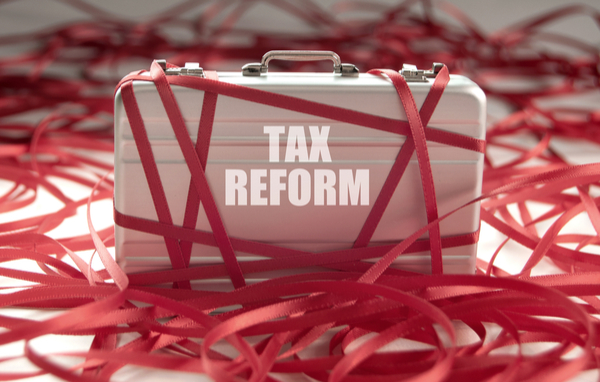According to a new study by the New York Federal Reserve, the Tax Cuts and Jobs Act, an overhaul of the U.S. tax code that was enacted in 2017 and puts a cap on some deductions for homeowners, has “negatively impacted the housing market” by lowering sales volume.
The new tax law placed a $10,000 cap on deductions of state and local taxes, increased the standard deduction and placed a $750,000 limit on the amount of mortgage debt that qualifies for interest write-offs.
A slowdown in home sales from late 2017 through the third quarter of 2018 can be partially attributed to changes in the tax law, in addition to interest rate hikes.
While the National Association of Realtor’s data shows that sales of existing homes slumped in the final quarter of 2018 as interest rates increased, they have since rebounded. In February, sales rose nearly 12 percent — the largest month-over-month gain since December 2015. Median home prices in February rose by 3.6 percent from the year earlier to $249,500, the 84th straight month of year-over-year gains.
Lawrence Yun, chief economist for the National Association of REALTORS®, said in NAR’s March existing-home sales report that tax policy changes continue to impact some markets. “The lower-end market is hot while the upper-end market is not,” Yun noted. “The expensive home market will experience challenges due to the curtailment of tax deductions of mortgage interest payments and property taxes.”
And according to Mark Fleming, chief economist for First American Financial speaking to the Washington Post, a new crop of homebuyers is emerging: “Tax refugees.” These are owners who are fed up with high taxes — now no longer deductible beyond $10,000 — and are heading to more tax-friendly locales. In the process, they may be creating “greater demand in the high end of lower-cost real estate markets,” Fleming said.
In addition, the Washington Post noted Brian Walsh, a Redfin agent in Tampa, Florida, which has no state income tax, says he is seeing clients who tend to be more affluent, moving from areas with high taxes to buy homes in Tampa and St. Petersburg. Other “tax refugees” that Walsh has encountered come from places such as New York, the Washington area, Chicago, and Denver.























0 Comments